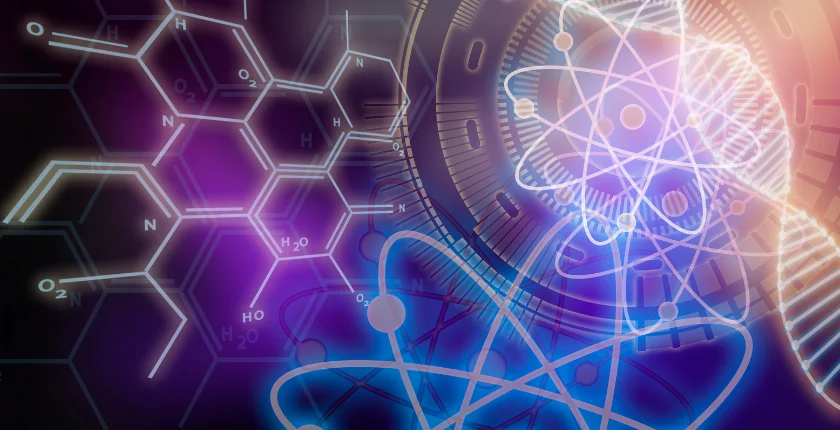Table of Contents
Introduction
In the modern global, in which science and philosophy intersect, few topics spark as tons debate as Biocentrism Debunked. Is it a groundbreaking principle that reshapes our expertise of fact, or is it an incorrect concept that crumbles beneath scrutiny? In this reader, we delve deep into the area of Biocentrism Debunked, setting apart reality from fiction, and alleviating light on the controversies surrounding it.
Biocentrism, an idea that posits that existence and focus are relevant to the universe, has gained tremendous attention in recent years. But, as with every revolutionary idea, it has faced its truthful proportion of skepticism and scrutiny. In this text, we embark on a journey to debunk the claims and discover the criticisms, all even as maintaining an essential eye on the evidence.
Unpacking Biocentrism
What is Biocentrism?
Biocentrism is a philosophical perspective that shows life isn’t always simply made from the universe but instead uses pressure in the back of it. It argues that focus creates reality, challenging the traditional view that the universe is inherently independent of observers.
Related Post 73147 Education.
The Biocentric Universe
According to this concept, the universe exists due to the presence of aware beings. It asserts that the entirety, from the cosmos to subatomic debris, is interconnected by using awareness.
The Role of Quantum Physics
Biocentrism frequently attracts from quantum physics to guide its claims. Quantum experiments, consisting of the double-slit test, were noted as evidence that recognition plays a fundamental role in shaping fact.
Biocentrism Debunked
The Lack of Empirical Evidence
One of the primary criticisms of Biocentrism is the absence of empirical evidence to guide its claims. While the idea may be exciting, many scientists argue that it lacks the essential scientific rigor.
The Observer Effect
Biocentrism hinges on the observer’s impact in quantum physics, but skeptics point out that this phenomenon is misinterpreted. It doesn’t necessarily prove that cognizance creates truth.
Alternative Explanations
Critics also recommend opportunity causes for the phenomena Biocentrism seeks to explain. They argue that conventional clinical models can account for the same observations without invoking cognizance.

Exploring the Controversies
Scientific Fringe or Paradigm Shift?
Biocentrism is frequently criticized for being on the medical fringe. Supporters argue that it is a paradigm shift in the making, even as detractors see it as pseudoscience. The debate rages on.
Ethical Implications
The implications of Biocentrism move past science. They contact on ethics because the theory indicates that each residing being has an intrinsic fee. This leads to discussions approximately animal rights, environmental conservation, and more.
The Search for Answers
The debate around Biocentrism is some distance from settled. Scientists and philosophers hold to explore its implications and check its claims through rigorous experimentation and Education.
| Topic | Controversy | Debunking |
|---|---|---|
| The nature of reality | Biocentrism claims that reality is centered on life and consciousness, while traditional physics claims that reality is objective and independent of life and consciousness. | Biocentrism is based on a number of scientific theories, including quantum mechanics and relativity, which suggest that reality is not as objective and fixed as we previously thought. However, there is no scientific consensus on whether biocentrism is a correct interpretation of these theories. |
| The role of consciousness in the universe | Biocentrism claims that consciousness is fundamental to the universe and that it plays a role in creating reality, while traditional physics does not assign any special role to consciousness. | There is growing scientific evidence to suggest that consciousness may play a more important role in the universe than we previously thought. For example, some experiments have suggested that consciousness may be able to collapse the wave function in quantum mechanics. However, more research is needed to confirm these findings. |
| The implications of biocentrism for ethics | Biocentrism suggests that all living things have intrinsic value and that we should treat them with respect, while traditional ethics often emphasizes the importance of human life and well-being. | Biocentrism could have a significant impact on our ethical thinking. For example, if we accept that all living things have intrinsic value, then we may need to rethink our treatment of animals and the environment. |
Biocentrism Debunked
Is Biocentrism surely a groundbreaking idea to redefine our know-how of the universe, or is it a mistaken concept that crumbles under scrutiny? The jury continues to be out, and the dialogue is some distance from over. As technology and philosophy continue to adapt, Biocentrism remains a topic of fascination and debate.
| Claim | Rebuttal |
|---|---|
| Biocentrism states that consciousness creates reality. | There is no scientific evidence to support this claim. |
| Biocentrism states that time and space are illusions. | Time and space are real and measurable quantities. |
| Biocentrism states that the universe only exists when we are observing it. | The universe exists independently of our observations. |
| Biocentrism states that we are all living in a simulated universe. | There is no scientific evidence to support this claim. |

FAQs about Biocentrism Debunked
Q: What are the troubles of biocentrism?
A: Biocentrism faces numerous challenges, consisting of a lack of empirical evidence, criticisms of misinterpreting quantum physics, and alternative reasons for the phenomena it seeks to explain.
Q: Is biocentrism a Woo?
A: Whether biocentrism is taken into consideration “woo” or not depends on one’s attitude. While a few view it as a groundbreaking paradigm shift, others see it as pseudoscience due to its arguable claims and shortage of empirical support.
Q: What is the biocentrism argument?
A: The biocentrism argument revolves around the concept that consciousness is vital to the universe, suggesting that life and observers play a fundamental position in shaping truth. It challenges the traditional view of a universe impartial to observers.
Q: What religion is biocentric?
A: Biocentrism is not related to any particular faith. It is a philosophical angle that focuses on the relationship between recognition and the universe, in place of adhering to religious doctrines or beliefs.




